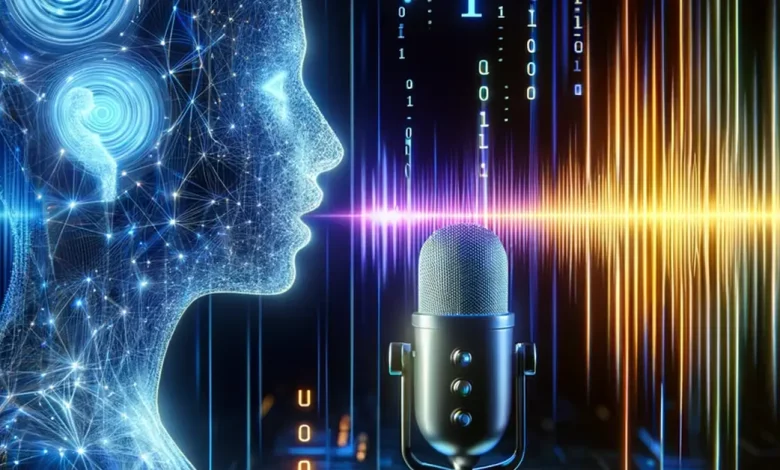Use of AI to Clone Voices
Syllabus: Science and Technology[GS Paper-3]

Context: In a recent development, the renowned music composer A.R. Rahman has astoundingly employed the capabilities of an advanced Artificial Intelligence (AI) software to revive the melodic voices of two deceased singing legends, namely Bamba Bakya and Shahul Hameed.
Key Points:
- According to a report by Market US, the global market for voice cloning applications is currently valued at $1.2 billion in 2022.
- It is projected to reach nearly $5 billion by 2032, experiencing a compound annual growth rate (CAGR) between 15% and 40%.
About Voice cloning:
- Voice cloning technology utilises advanced AI algorithms to imitate the complexities of human speech patterns.
- This unique method relies on training neural networks, a crucial element of artificial intelligence, with large sets of recorded speech data.
- Many online applications, such as Murf, Resemble, and Speechify, make use of this technology.
- In a recent incident, the political party of former Pakistani Prime Minister Imran Khan employed an AI-generated speech from the incarcerated leader in an effort to gather support for their campaign.
Uses of Voice cloning:
- Preserving legacy involves keeping the voices of loved ones alive for future generations.
- Apple has introduced a voice cloning feature in iOS 17 to assist individuals who may lose their voice due to a degenerative disease.
- Personalised experiences include customised virtual assistants and interactive storytelling, providing more immersive digital interactions.
- Gaming companies are also involved in the AI voice game, with Meta launching SeamlessM4T, which can understand and translate nearly 100 languages in real-time.
- Accessibility is another benefit, offering a voice to those who have lost it or will lose it due to illness or disability.
- YouTube has also introduced Dream Track, allowing users to create song clips featuring AI vocals with permission from popular artists.
- These advancements have creative applications in enhancing storytelling, audio games, and providing immersive experiences.
Concerns and problems related to voice cloning:
- In April 2023, a family in Arizona, U.S. was targeted by a scam where an AI cloned voice demanded ransom for a fake kidnapping.
- There were several unreported cases and only a few were exposed.
- The availability of AI voice clones also led to the spread of fake news. It was claimed that actress Emma Watson read a portion of Mein Kampf, and concerns were raised about privacy and consent regarding the unauthorised use of voices.
- The ethical implications include the potential for exploitation, manipulation, and emotional harm through impersonation.
- This has social implications for identity, trust, and communication in the digital age.
- Additionally, there were instances of hate speech generated using AI voice cloning tools, including alleged racist comments made by conservative political pundit Ben Shapiro against Democrat politician Alexandra Ocasio-Cortez.
Steps taken to address Voice Cloning:
- It is important to have strong legal and ethical guidelines in place to prevent misuse and protect privacy in relation to voice cloning.
- The US Federal Trade Commission is considering implementing an Impersonation Rule to discourage deceptive voice cloning.
- Technological measures such as watermarking can help identify and verify cloned voices.
- Public awareness and education about voice cloning and its potential risks are crucial.
- The US Federal Trade Commission has initiated a Voice Cloning Challenge to gather ideas on detecting and monitoring cloned devices.
- It is important to promote responsible development and use of voice cloning for positive societal impact.
Conclusion:
The responsible development and use of voice cloning are crucial for its future, as it requires a balance between its benefits and ethical concerns to prevent misuse.
Source: The Hindu
UPSC Mains Practice Question:
Q. The widespread use of voice cloning technology raises both potential benefits and ethical challenges for society. Discuss the implications of AI-based voice cloning and its impact on our ethical values. (250 Words)





.png)



